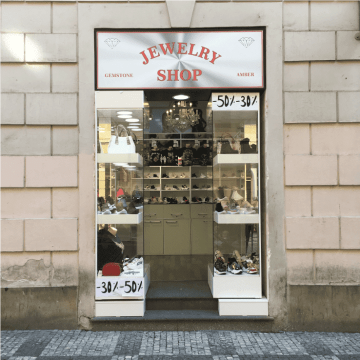THE LIMITS OF ARCHITECTURE – FUNCTIONAL TOURISM
Where does architecture begin and end? On what topics should architects be invited and in what social discussions should they be actively involved? These questions led Architects Without Borders to organize a series of public discussions called The Boundaries of Architecture. Two guests who are close to the topic under discussion are invited to one table - one architect or urban planner and an expert from another profession. Together we are looking for the boundaries of architecture and its intersections with other social disciplines.
The topic of Functional Tourism was discussed by social geographer Michaela Pixová and Kristýna Drápalová, at that time from the Institute of Planning and Development of the City of Prague, now working at the Prague City Hall.
RNDr. Michaela Pixová, Ph.D. is a social geographer researching urban environments, their relationship to alternative cultures and active civil society. She is an activist at the birth of PragueWatch, a former active member of the artistic group Guma Guar, once also performing under the pseudonym MC Mikatchou as a voice accompanist of electronic dance music. Today, she is mainly interested in urban activism in the Czech Republic, which she is researching as part of her postdoctoral project at FSV UK. As an author she collaborates with the online journal A2larm. Here, in addition to topics related to her field of study, she focuses on critiquing the plight of women in the Czech patriarchal and materialistic society, especially in relation to the maternity care system and parenting.
Mgr. Kristýna Drápalová studied art history at the Faculty of Arts, Charles University in Prague. She writes texts on art, architecture and urban development for Orientaci Lidové noviny and other periodicals. She has worked with the Institute of Planning and Development in Prague, where she dealt with issues related to the Prague Conservation Reserve. Currently (2020) she works at the Prague City Hall, where as Assistant Councillor for Culture she is responsible for the Cultivated Prague project.

Historical and social context of the tourist boom in Prague
The context can be found in the 1990s, when, according to Michaela Pixová, Prague was completely transformed. It was a time of restitution, privatisation of flats and a specific approach of politicians, which is captured by the concept of laissez faire (French for "let do, let go", a slogan of classical liberalism, note). This combination brought about a change in the functional use of the centre, and the potential for tourism was already known at the time.
Further changes in the 1990s read in the unequal conditions of the inhabitants. While some got rich from the favourable privatisation of housing, others were not entitled to it. These residents were greatly frustrated but in most cases could not defend themselves adequately. Visible reactions were therefore more in the order of units.
The theme of the transformation of post-revolutionary Prague is more closely presented in Micheala Pixová's dissertation: Fighting for the Right to the City: Alternative Spaces in Post-Socialist Prague.
Transformation of the centre

The current problem of Prague is the tourists who stay here only for a short time, spending only two nights on average. They pass through the tourist hit parade and move on again. Kristýna Drápalová described this approach as completely consumerist, superficial and fast at the same time. In the places concerned, the parter adapts to tourist demand: for example, on the Royal Route, which is just over four kilometres long, there are around eighty jewellers, countless exchange and souvenir shops and only two food stores.
As a result, locals are leaving the centre because of the lack of services. Instead of apartments with residents, we find mostly offices, company headquarters and hotels. Let us add that in the last five years (before the coronavir crisis) the number of tourists who came to Prague increased by two million. In 2019, the number of tourists that Prague can accommodate was 8 million.
Among the most cited "tourist" ailments of the centre are segways and similar electric vehicles, which have earned their own prohibitive traffic signs, disturbance of the night-time peace and beer tours, the so-called pub crawl. Prague's leadership is actively trying to combat these nuisances. Last but not least, the growing use of flats for hotel business, the so-called short-term airbnb accommodation, is a problem in the centre.
What is Prague's position?
Tourism is an important source of the capital's finances, accounting for almost one tenth of the budget. In the new Tourism Concept, the city has set itself the goal of making other parts of Prague more attractive and creating experiences that will enrich not only tourists but also residents. The city's umbrella tourist organisation is Prague City Tourism (formerly Prague Information Service), which produces tourist information about Prague, maps and infomaterials.
The impact of tourism is also a major political issue. Michaela Pixová, who participated in the creation of the Strategic Plan of the City of Prague as well as in the public debates on the creation of the Metropolitan Plan, said that the political discussions have failed on the discord between the right and the left. That is, the question of whether the invisible hand of the market should be left free or whether private interests should be regulated in the public interest.
And what instruments of regulation should Prague have?
According to Kristýna Drápalová, we don't know or know how to use many tools yet. In Prague, property relations are a big obstacle, as most of the buildings in the Prague Conservation Area are privately owned. A minor tool is the tourist tax, which in Prague is only 15 CZK per night. An amendment is being prepared to raise it to CZK 50. Michaela Pixova cited the fee in Bhutan for comparison, where it is about $100 per day. The effect? Only the real heartthrobs who want to experience the place will come.
In 2020, Prague introduced the so-called Manual for a Cultured Prague, authored by Kristýna Drápalová. The rules are binding for tenants in the premises of the municipality, but unfortunately their enforcement is more difficult in private establishments. This project can be followed on the Kultivovaná Praha instagram.

At the beginning of 2019, a so-called Night Mayor was established to deal with problems during the night time. His main focus has been on restrictions on beer tours, known as pub crawls, for example. It is also possible to work with softer tools such as limiting the establishment of new hotels, tax differentiation or regulating the use of buildings and spaces. According to Kristýna Drápalová, for example, Bruges, Belgium, banned the establishment of new hotels as early as 1996!
Letecká doprava a turismus
In the last ten years, tourism has become a mass affair, with low-cost airlines offering unbeatable prices (thanks to discounted aviation fuel, among other things). Examples are Venice or Barcelona, which have become tourist hits after airlines started supplying them with tourists. Air transport is one of the big emitters of CO2 and thus contributes significantly to the warming of the planet. Worse still, this transport has no alternative that does not leave a carbon footprint. The only alternative is therefore not to fly.
"The decision of whether we support continued economic and tourist growth or prefer to survive on the planet is in our own hands."
- Michaela Pixová -
Conclusion
Kristýna Drápalová's final wish was that, knowing all the negative impacts of tourism, we should honestly consider whether we really need to visit a given place before travelling abroad. What is the point of our visit? What do we want to learn, what kind of experience do we want to make, and what should we keep from our trip besides a few photos? And do we really have to travel for this, can't we achieve the same result in other ways, like reading or looking at photos? Kristýna pointed out the high position of travelling in the ranking of our social values, although it is not positive and meaningful in itself - at least in its most widespread consumerist form. We can contribute to a little reflection, for example, by stopping liking photos of friends from far-away trips and Euro weekends.
"Let's travel less, but slower and harder."
- Kristýna Drápalová -
The discussion took place in November 2018 at the Scout Institute on Old Town Square. The series of public discussions and articles Borders of Architecture is supported by a grant from Nadace české architektury.